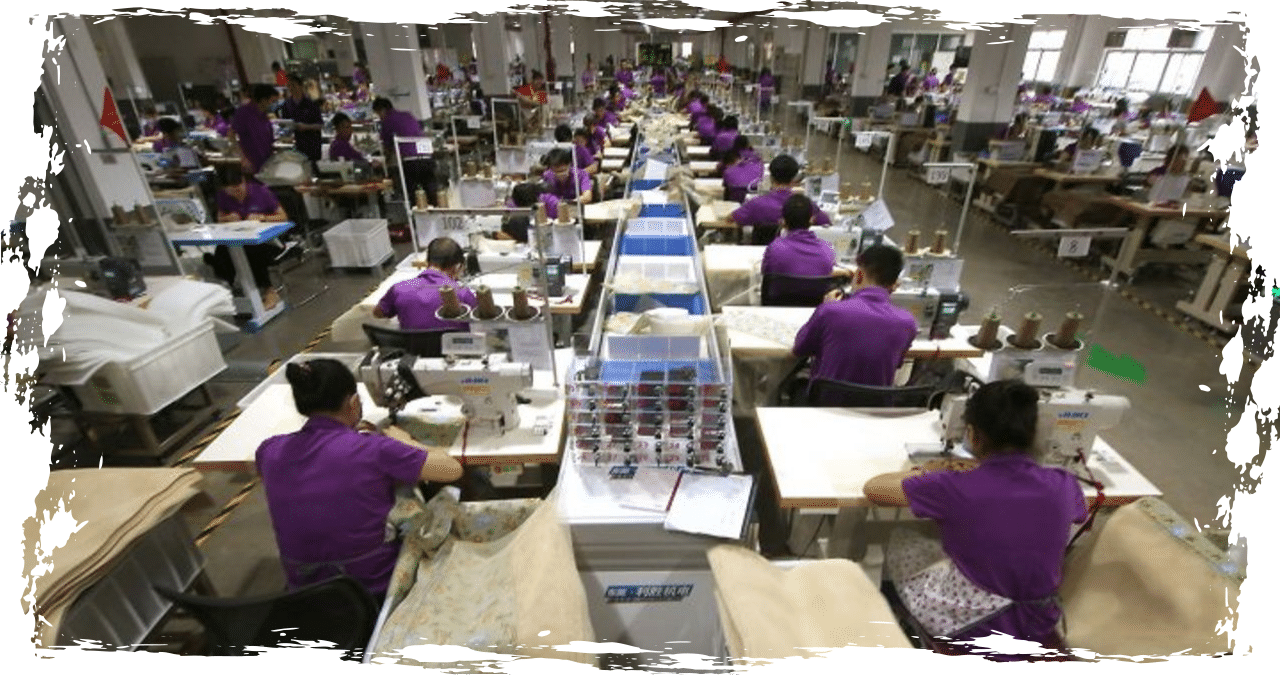On Tuesday, the Biden administration took action against the use of forced labor by banning imports from three additional Chinese companies. This move is part of a larger effort to protect the minority populations of Asia that are often exploited in America’s supply chain.
In a statement released on Tuesday, Homeland Security Secretary Alejandro Mayorkas made it clear that the Department of Homeland Security will not tolerate forced labor in any industry or sector within the United States. He emphasized that the laws will be enforced to ensure that such practices are eradicated from U.S. supply chains.
According to the Department of Homeland Security, three Chinese companies are responsible for producing seafood, aluminum, and footwear goods. These industries are crucial to the economy of Xinjiang, as stated by the DHS.
Mayorkas stated that their team will persist in examining companies that utilize or aid in forced labor and will ensure that those entities are held accountable. He also implored stakeholders from various sectors, including industry, civil society, and international partners, to collaborate with them in their efforts to eradicate the problem of forced labor.
The Forced Labor Enforcement Task Force, led by DHS and consisting of the federal departments of commerce, justice, labor, state, and treasury, has issued the call. Additionally, the office of the U.S. Trade Representative is a member of the task force.
Along with 68 other Chinese companies, these entities have been added to the Uygur Forced Labor Prevention Act Entity List. Due to accusations of using or aiding forced labor of Uyghur individuals, including Kazakh and Kyrgyz people from the Xinjiang region in northwest China, their goods will be prohibited from entering the United States by the U.S. Customs and Border Protection.
Rizhao Meijia Group, also known as Shandong Meijia Group Co., Ltd., operates from Shandong Province and specializes in the production, sale, and export of frozen seafood products, vegetables, and other quick-frozen convenience food.
According to John Williams, executive director of the Southern Shrimp Alliance based in Florida, the supply chains of shrimps have displayed a concerning tendency to capitalize on the world’s most vulnerable populations.
According to the Southern Shrimp Alliance, Tuesday’s announcement was groundbreaking. This news release commended the recent move.
Williams pointed out that it is unacceptable for Argentinian red shrimp, which is packed by Uyghurs in Chinese seafood processing plants, to be in competition with other high-quality products in American grocery stores.
According to the accusations made by the United States, the seafood company participated in a labor transfer program sponsored by the Chinese government. The program was designed to relocate Uyghur individuals and other minority groups out of Xinjiang and provide them with labor opportunities at the company’s factory in Shandong.
According to Williams, the task force’s initiative to combat forced labor in seafood supply chains delivers a powerful message to U.S. seafood importers. He emphasizes that prioritizing cost reduction and profit maximization should not come at the expense of ethical and legal responsibilities.
Based in Guangdong Province, Dongguan Oasis Shoes Co., Ltd. produces shoe and shoe material goods. It operates under several “Dongguan” styled companies.
According to reports, Dongguan is accused of collaborating with the Xinjiang Production and Construction Corps to recruit, transfer, and receive members of persecuted minority groups, such as the Uyghurs, from Xinjiang to a factory located near the southeastern coast of China in Guangdong.
Xinjiang Shenhuo Coal and Electricity Co., Ltd. specializes in the production of electrolytic aluminum, graphite carbon, and prebaked anodes. The company is based in Xinjiang.
In December 2021, President Joe Biden signed the Uyghur Forced Labor Prevention Act, which is a bipartisan effort aimed at prohibiting the import of goods from the region due to alleged human rights violations against the Muslim Uyghur population, unless the importer can prove that the goods are not made with forced labor. Additionally, the act imposes sanctions on foreign individuals who make use of forced labor.
According to Sen. Marco Rubio of Florida, who co-sponsored the bill, the law signed by President Biden is the most significant and influential measure taken by the United States to hold the Chinese Communist Party accountable for their utilization of slave labor.
The Uyghur Human Rights Project, a research and advocacy group based in Washington, reveals that around 449,000 individuals, including 1 in 26 Uyghurs and non-Han people in the Xinjiang Uyghur Autonomous Region in northwest China, were subjected to imprisonment in 2022.
According to the report, although the Uyghur and non-Han population in Xinjiang constitutes just 1% of China’s total population, they constitute 34% of the country’s estimated prison population in the Uyghur Region.



